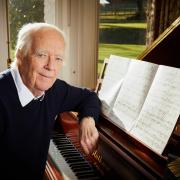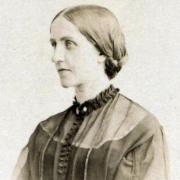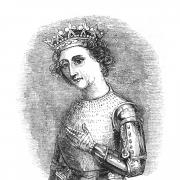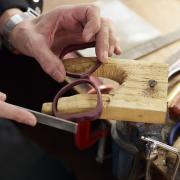Don’t be afraid of failure. Don’t appear on I’m a Celebrity… Get Me Out of Here. And never, ever dance on a giant piano after a hip operation. Matthew Kelly imparts pearls of wisdom to Katie Jarvis

You know me. I’d never ask anything personal. I always have a list of interviewee questions I simply would not – under any circumstances - have the effrontery to pose. (So as not to get confused, I mark this list, ‘Interesting Questions’.)
The list includes: divorce; age; sex (not as in gender) (though that can be complicated); religion; money; home address; scandal; anything not covered that’s potentially upsetting to said-interviewee; anything interesting.
And nothing – absolutely nothing – below aortic level.

“I’ve just come out of hospital with a hernia,” Matthew Kelly tells me, barely two minutes into our first ever conversation.
Interesting.
Given more time, I’d Google ‘Appropriate responses to hernia’, (possibly an entry on How To Address a Duke). As it is, I have to improvise.
“I’m SO sorry!” I ad lib, using the intonation recommended for ‘Duke Has Just Died’.

“Don’t be,” Matthew Kelly says, in a Lancashire accent that strongly indicates all hernias are funny. “I’ve had me crumpets sewn up; it’s all right.”
The thing is, he explains, he didn’t exactly sustain his hernia in the most common of ways [pregnancy, frequent coughing, ‘bathroom’ issues. Source: Cleeveland Clinic].

“I’ve just come out of Big the Musical, at the Dominion, and had to dance on a giant piano. Well, last year, I had a hip replacement. When they rang up, they said, ‘How’s your hip?’
“I went, ‘Fine!’
“’Can you dance?’
“I went, ‘Yeess!’ (Ride a horse? I can ride a horse! I’m terrified of horses but you say anything to get a job.)”
It was, he admits, a taradiddle of iliac [Source: Illustrated Guide to Veterinary Terminology] proportions.
“My hip was not fine at all because I kind of abused it.” Threw away his crutches and returned to work after four weeks.
“However! Because I got that job, it made me go back in the gym for three months with a trainer and get some muscles back in my legs. He trained me to do that giant piano dance.
“It was brilliant - but that’s when all me pipes fell out and I had to have a hernia operation. It’s swings and roundabouts… You know what I mean.”
TBH, it’s difficult to know how to use this anecdote. “I can’t even say, ‘The moral of this is: Don’t dance on giant pianos’,” I point out. “Because that’s useful for about .0000001 percent of the population. If that.”
“It’s a niche market,” Matthew Kelly agrees.
**************
Tonight [presenter name] Matthew Kelly is going to be... WH Auden!
Well, actually… It’s more complicated than that.
Because when Matthew Kelly appears in Alan Bennett’s The Habit of Art at Cheltenham’s Everyman at the end of this month (alongside David Yelland playing Benjamin Britten (though, actually, it’s more complicated than that)), he plays an actor playing WH Auden.
If you haven’t seen it, this is a wonderful play within a play. Funny, moving, witty; a treatise on friendship; a study in anger. The Habit of Art imagines a late-in-life meeting between two 20th century geniuses: Auden the poet and Britten the composer.
In real life, the two had been bosom pals: colleagues and collaborators, who together created the idiosyncratic operetta Paul Bunyan. That premiered in 1941. Bennett’s play is set in 1972, a year before Auden’s death from heart failure at the age of 66 – and some 30 years after the two men stopped speaking.
“When Benjamin Britten fell out with people, it was FOREVER!”
A tricky man, then. So what about Auden?
“Oh yeah. Oh yeah! I love Auden. He was a good-hearted man; he was a kind man. He was a very eccentric man but he had a way of being accessible, so his poetry is fantastically accessible. Whereas Benjamin Britten was a rather uptight and frightened man, I would say.”
Frightened of what?
“Life.”
When Matthew was playing in Ipswich, he visited the Red House, Britten’s former home in Aldeburgh, now a museum dedicated to the composer. “Some of the original letters quoted in the play are actually there. Amazing to read those letters they wrote to each other. The difference between the two of them is that Auden was just a walking slum.”
A slum?
“Oh, darling! He was such a mess. That’s why they’ve never preserved Auden’s place of home and work. He never bothered with personal hygiene.”
Out of everyone, though, it’s Alan Bennett who comes up smelling of roses. Sends a bottle of champers to every company putting on one of his plays.
“I told the company this was what would happen, and it did. Then, the next day, he sent a personalised card to everybody, thanking us for doing the play, with a pen-drawn cartoon of himself.
“He probably hates being called a national treasure but that’s what he is. You know instantly good-hearted people; people who want the best for everybody. Bennett is one of those people.”
****************
Actually, Matthew Kelly isn’t bad himself.
There’s a Northern friendliness to him – a natural intimacy: “Are you Kate or Katie?” – that puts others instantly at ease.
He grew up in Urmston, Greater Manchester, middle one of three boys. This was no showbiz family – his dad was a printer and his mum a social worker – but the lads were encouraged to follow their dreams.
And Matthew didn’t need telling twice. After grammar school, he joined Manchester School of Theatre. By the early 70s, he was at Liverpool Everyman alongside other future stars such as Julie Walters, Bill Nighy, Jonathan Pryce and Willy Russell.
“They were all amazing people. We were at the Everyman for a year, and then we all went on to the West End together. What was it like? It was thrilling; it was exhausting; it was nuts; I love the company of actors. They are kind people and supportive and generous spirited. I had a brilliant time.”
He and his son – the actor Matt Rixon – performed together in Endgame in 2008, the penultimate show of the old Liverpool Everyman before it underwent a radical redevelopment.
“And then we opened the new Everyman in Twelfth Night, which I did with Nicholas Woddeson – he’s very, very good. We’d been in the original company together; started there in ‘74 with Taming of the Shrew.
“I said to him, ‘What would you have said 40 years ago if you’d known that we’d be back here pedalling the same old shit?’ And he said, ‘Shoot me now.’”
He jokes – because he adores his traditional theatre. And he adores his fellow actors. Even when they cause him grief. Like the time he was on stage in Aberystwyth with his mate, the late Pete Postlethwaite, in Arnold Ridley’s The Ghost Train.
Pete, unimpressed with the production, left mid-performance, declaring to the audience, “This is a load of bollocks.”
“Instead of going, ‘Pete’s just walked off the stage. Where is he? What’s the matter with him?’ No! We decided to finish the show between ourselves… In what was supposed to be a locked room, which he’d just walked out of. The show must go on, my dear!”
You need to write an autobiography, I tell him.
“Let me tell you, Kate. I’ve told my children that, if ever they catch me writing my life story, I’m to be taken out and shot.”
**************
It would make a pretty good book, though.
For one thing, Matthew Kelly’s career has had more twists and turns than The Mousetrap. From musicals (Lend Me A Tenor!) to Moors (The Jew of Malta); from an Olivier Award (for Lennie in Of Mice and Men at the Savoy), to TV credits for You Bet!, Stars in Their Eyes, and Channel 5’s Top of the Box.
“I’ve never known my limitations. I look back at some of that CV and think: I shouldn’t have done that. Because I was not capable of doing it.”
Honestly? I would say the opposite.
“Oh, blimey! You only learn by getting it wrong. If you get it right all the time, what are you going to do with that? You’re just giving yourself a pat on the back. I hate getting it wrong but you have to.”
So let’s have a big disaster.
He laughs. “I did a series for Granada years and years ago. In the early 80s, I guess. And it was terrible. The worst thing about it was, I was the worst thing in it.
“Years after, I went back to do Stars in Their Eyes, and the boys who worked the doors with the smoke would threaten, ‘We’ll show everybody this ghastly show that you made!’”
I’m guessing he’s not going to tell me what it was…
“NO! I’m not! I don’t want all my failures dragged out – people had to suffer it the first time round.”
But stretch himself he does. Like the six years he spent doing an OU psychology degree in the back of cabs, in hotel rooms and during breaks. I’d have guessed his motivations might have been for a deeper understanding of character; or maybe as a result of seeing the weirdness of human nature exposed on the proto-reality TV he’s done, such as the Game for a Laugh prank show.
But, no. It was to prove to himself that he was intelligent, after years of laziness at school.
Certainly nothing to do with reality TV shows.
“Which are nothing to do with reality so I don’t know why they’re called that. If you went on I’m a Celebrity… Get Me Out of Here, you could be the nicest man in the world for 99 percent of the time, and for 1 percent you’ll be an absolute arse. And that’s the bit they’d show. And everybody would go, ‘Oh, well he’s an arse’.”
Money has never been a motivating factor for Matthew Kelly.
“Money’s brilliant. I really like it but I’m hopeless with it so it can’t ever be a motivating factor. Sometimes you have to do things for money just to live; and sometimes you do work because it’s thrilling and interesting and challenging.”
**************
So, I ask him – this man whose stage career spans nearly half a century. How has theatre changed? What are the good things in 2020; and what does he miss from 74?
“Well,” he says, thoughtfully, “theatre is a powerful medium and I think it’s underestimated. But it’s certainly not underestimated by government. And because it’s so powerful, and because it’s so visible, we are the first people to be cut.”
Gosh. Never thought about it like that.
“BUT. The good things about theatre are - and I recommend it to anybody who’s never been before - to share an experience, a physical and emotional experience, with an audience, watching ideas on stage that don’t judge you or the people in the story. It’s a great way to spend an evening. It’s cheaper than a round of drinks. It lasts longer and it doesn’t give you a hangover.”
He loves Cheltenham’s Everyman, he volunteers without my asking (doing my job for me). “I’ve only played it once but it has the best acoustics of any theatre I’ve ever been in. And it’s probably the most beautiful as well. It’s a Matcham [Frank Matcham, theatre architect]. And I’m looking forward to coming back.”
And we’re looking forward to having you, I say.
“Let us know when you’re there, Kate, and I’ll buy you a bevvy.”
Matthew Kelly was due to be at Cheltenham Everyman in The Habit of Art, March 23-28; 01242 572573, everymantheatre.org.uk - the theatre is currently doing all it can to reschedule performances so keep up on the website.



























